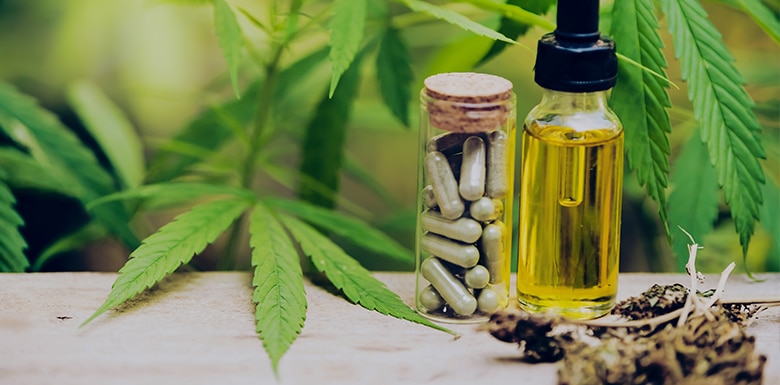
Cannabis: Where Industry Meets Law
This is the first in a series of articles on the rapidly growing cannabis industry. They are designed to provide background information and general familiarity with the industry. After the background series, we will post information about related legal issues, including the recent “ban bill” enacted by the State of Arkansas.
What’s in a Name? Cannabis, Marijuana, Hemp, CBD, Medical, Recreational
The cannabis industry is made up of businesses that grow and sell plants from the cannabis family, which includes marijuana and hemp. These plants have been used for many years for a variety of purposes such as medicine, recreation, fiber, and industrial.
Both marijuana and hemp plants belong to the same family, Cannabis sativa L., but they are legally different because of their levels of THC. THC is the acronym for tetrahydrocannabinol, the compound that can make people feel high or stoned. Marijuana contains more than 0.3% THC, while hemp contains 0.3% THC or less. Marijuana is illegal at the federal level, while hemp is legal.
Is Hemp Legal in the U.S.?
Hemp became federally legal in the United States with the passage of the 2018 Farm Bill. The Farm Bill removed hemp from the list of controlled substances under federal law and defined it as any part of the Cannabis sativa L. plant with a THC concentration of 0.3% or less on a dry weight basis. This means that hemp is no longer considered a controlled substance like marijuana, which remains illegal as a Schedule I controlled substance under federal law. The 2018 Farm Bill opened new opportunities for the hemp industry, especially the legal production and sale of hemp and hemp-derived products.
THC Content of Marijuana vs. Hemp
Marijuana contains high levels of a psychoactive compound called THC, which can make people feel “high” or “stoned.” While it is federally illegal, it is legal in some states for medical or recreational use. For example, Arkansas has a legal medical marijuana program but has not legalized recreational use.
Hemp, on the other hand, contains lower levels of THC and higher levels of CBD, another compound that you may be familiar with. CBD is the acronym for cannabidiol and is known for its health benefits. It is a federally legal hemp derivative, meaning that it must contain less than 0.3% THC. This amount is not considered enough to cause intoxication in most people.
Effects of THC Consumption
However, it is important to note that everyone reacts differently to different substances, and some people may be more sensitive to the effects of THC than others. While the chances of feeling high from small doses of legal hemp products are lower, hemp-derived products can contain THC levels that may cause a psychoactive effect in some individuals. THC is the same compound whether it is extracted from hemp or marijuana, so 10 milligrams of hemp-derived THC has the same impact as 10 milligrams of marijuana-derived THC. That said, hemp-derived products are typically sold in smaller doses, so the effect is less.
Not all hemp-derived products contain THC, though. Some products are made with only non-psychoactive compounds like CBD, CBG, CBN, THCV and others. These products are not intended to make people feel high or stoned.
Growing Hemp Industry and Product Use
The hemp industry has grown rapidly because more people are experiencing health benefits of CBD and other hemp derivatives. Hemp is used to make a variety of edible products, personal care products such as oils, tinctures, and is also used to make fabrics and industrial products such as building materials and insulation. It is regarded as a sustainable and regenerative agricultural crop.
It is also important to purchase products from reputable sources and to check labels to ensure they comply with legal requirements. Consumers should always consult with a healthcare provider before using any cannabis-related products, especially if they have a medical condition or take other medications.
Questions about Cannabis Law in Arkansas? We Can Help
Overall, the cannabis industry is a complex and growing industry, and understanding the difference between marijuana and hemp is an important part of understanding the industry.
For more information or to discuss your cannabis business needs, contact Susan at The Law Group of Northwest Arkansas PLLC at (479) 316-3760.
Disclaimer: The Law Group of Northwest Arkansas PLLC (TLGNWA) provides general information about a variety of legal issues on this website as a public service. Information contained herein should not be considered legal advice on any specific matter. The use of information and reference links contained in this website do not constitute contractual, de facto, implied or any other form of attorney-client privilege or relationship. TLGNWA is not responsible for the use of information, forms, links, or documents contained in this website.
Due to the frequency and speed of changing laws, no guarantee is made as to the current validity or applicability of the information contained herein. Though we try to update information often, we recommend that readers with questions investigate current law or contact TLGNWA directly through our contact form or by calling (479) 334-3411.
